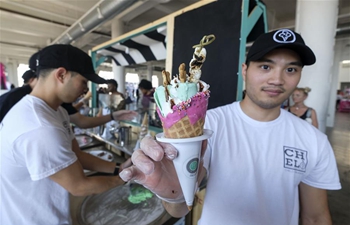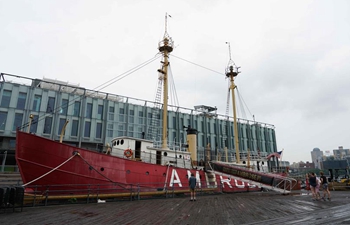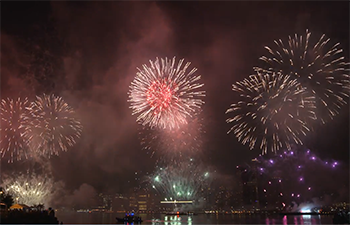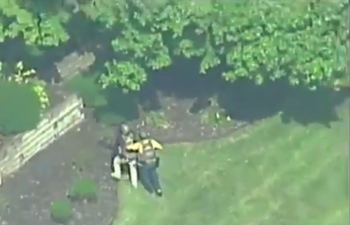HAVANA, July 8 (Xinhua) -- Cuba has launched an ambitious plan to develop sustainable tourism, especially in the northern paradisiacal islands.
Santa Maria, Las Brujas and Ensenachos, the keys off the coast of north-central Villa Clara province, are being developed as environmentally friendly resorts.
The Caribbean takes the preservation of the pristine islands, which are connected to each other and the mainland via a 48-km causeway with more than 40 bridges, as a priority.
The islands have set up five waste treatment plants that process between 20,000 and 30,000 cubic meters a month of sewage from local hotels; the sewage can be used for gardening.
The keys will soon be equipped with a desalination plant that can purify water through reverse osmosis at a rate of 50 liters per second.
"Next year, we will install another one with the same capacity, to purify 100 liters of water per second," Frank Oltusky, vice president of Cuba's tourist group Gaviota, said recently.
The area is part of the Bay of Buena Vista ecosystem, which was declared by UNESCO as a "Biosphere Reserve," and the government has invested in different types of processing and recycling plants to manage hotel waste.
Tourism is Cuba's second source of revenue. The nation welcomed 4.7 million tourists in 2017 and hopes to set a new record by receiving 5 million visitors this year.













